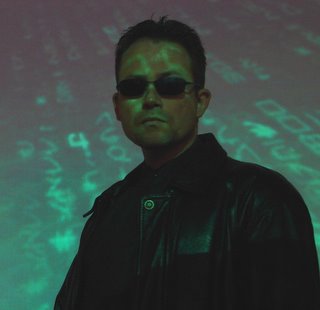My general approach to teaching my high school math classes is to create scientists of my students. (This will be particularly true of my IB Math SL class next year!) By this description, I mean that they are actively inquiring as to the nature of the material they study. We routinely practice questioning techniques that they can use even during tests when they come to unfamiliar territory.
In our ongoing efforts to help produce students ready for the world outside of education, our school has partnered with some local industries to help ensure that we really are doing the job that they require us to do. One of the best pieces of information we have gleaned from those partnerships was from one manager who said "we need workers who know what to do when they don't know what to do." Far from being nonsensical doublespeak, this was an urgent plea for problem-solvers. He was really saying that they need independent thinkers, not mindless drones. Workers who can solve problems effectively are an asset to the company, and provide much more value when they can reach beyond the minimum requirements.
So, my "scientists" are preparing themselves to become future leaders! To do that, they will need to be able to make educated guesses (hypotheses) and to determine a best course of action (testing/evaluating.) Sometimes, that constructionist way of approaching problems works very well-- especially when students are empowered to build prototypes, to rehearse and play out hypothetical situations, or to create demonstrations of a concept. All of those skills build not only an item, but also build and strengthen the neural networks surrounding those concepts in their minds.
Currently, my AP calculus students are working on their exam projects. Each group of 4 students has selected a topic that interests them from our year of study, and are developing "some interactive awesome thing" (my description in class) to teach future classes about their topic. The final products range from music videos, to electronic models that demonstrate volumes of three-dimensional figures, to interactive displays allowing experimentation with concrete representations of abstract concepts. Participation is excellent - students are able to write their own exam grade by judicious application of the supplied rubric throughout the process, and their personal interests and skills greatly guide the development. The level of engagement is particularly impressive when we consider that we have already covered the entire textbook and the AP Exam has already happened, leaving us with a rather empty month before the end of school.
Subscribe to:
Post Comments (Atom)




"We need workers who know what to do when they don't know what to do."
ReplyDeleteI love this quote. I think I am going to add it to my wall of important words and quotes. This idea is an issue that I repeatedly had with my Pre-Calculus class this past year. Without me holding their hand they struggled to do anything. They would continually balk at assignments when I expected them to think on their own rather than spoon feed them information. Next year I am going to create activities that are specifically designed to get students to figure out what to do when they do not know what to do.
Your school partnership with the local industry is a step in the right direction.Some schools in my district have similar partnerships and that has influenced the modification of their curriculum in a way that reflects what the students would meet when they graduate from high school.Constructionist/constructivist learning theories would be relevant in training the students on how to apply information in solving real life problems.
ReplyDeleteThe project topics selected by your class are quite interesting.The projects not only keep the students meaningfully engaged but also enhance their problem solving skills.